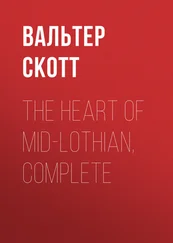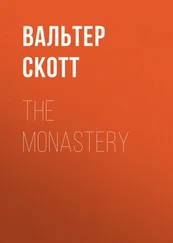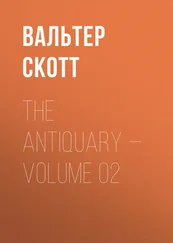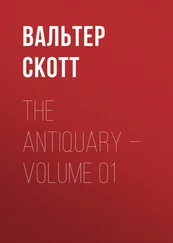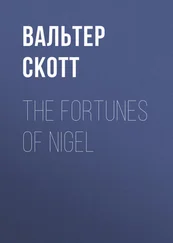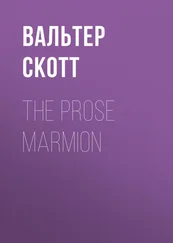Вальтер Скотт - The Surgeon's Daughter
Здесь есть возможность читать онлайн «Вальтер Скотт - The Surgeon's Daughter» — ознакомительный отрывок электронной книги совершенно бесплатно, а после прочтения отрывка купить полную версию. В некоторых случаях можно слушать аудио, скачать через торрент в формате fb2 и присутствует краткое содержание. Издательство: Иностранный паблик, Жанр: foreign_antique, foreign_prose, Альтернативная история, на английском языке. Описание произведения, (предисловие) а так же отзывы посетителей доступны на портале библиотеки ЛибКат.
- Название:The Surgeon's Daughter
- Автор:
- Издательство:Иностранный паблик
- Жанр:
- Год:неизвестен
- ISBN:нет данных
- Рейтинг книги:5 / 5. Голосов: 1
-
Избранное:Добавить в избранное
- Отзывы:
-
Ваша оценка:
- 100
- 1
- 2
- 3
- 4
- 5
The Surgeon's Daughter: краткое содержание, описание и аннотация
Предлагаем к чтению аннотацию, описание, краткое содержание или предисловие (зависит от того, что написал сам автор книги «The Surgeon's Daughter»). Если вы не нашли необходимую информацию о книге — напишите в комментариях, мы постараемся отыскать её.
The Surgeon's Daughter — читать онлайн ознакомительный отрывок
Ниже представлен текст книги, разбитый по страницам. Система сохранения места последней прочитанной страницы, позволяет с удобством читать онлайн бесплатно книгу «The Surgeon's Daughter», без необходимости каждый раз заново искать на чём Вы остановились. Поставьте закладку, и сможете в любой момент перейти на страницу, на которой закончили чтение.
Интервал:
Закладка:
Walter Scott
The Surgeon's Daughter
INTRODUCTION. – (1831.)
The tale of the Surgeon’s Daughter formed part of the second series of Chronicles of the Canongate, published in 1827; but has been separated from the stories of the Highland Widow, &c., which it originally accompanied, and deferred to the close of this collection, for reasons which printers and publishers will understand, and which would hardly interest the general reader.
The Author has nothing to say now in reference to this little Novel, but that the principal incident on which it turns, was narrated to him one morning at breakfast by his worthy friend, Mr. Train, of Castle Douglas, in Galloway, whose kind assistance he has so often had occasion to acknowledge in the course of these prefaces; and that the military friend who is alluded to as having furnished him with some information as to Eastern matters, was Colonel James Ferguson of Huntly Burn, one of the sons of the venerable historian and philosopher of that name – which name he took the liberty of concealing under its Gaelic form of Mac-Erries .
Abbotsford, September 1831.
APPENDIX TO INTRODUCTION
[Mr. Train was requested by Sir Walter Scott to give him in writing the story as nearly as possible in the shape in which he had told it; but the following narrative, which he drew up accordingly, did not reach Abbotsford until July 1832]
In the old Stock of Fife, there was not perhaps an individual whose exertions were followed by consequences of such a remarkable nature as those of Davie Duff, popularly called “The Thane of Fife,” who, from a very humble parentage, rose to fill one of the chairs of the magistracy of his native burgh. By industry and economy in early life, he obtained the means of erecting, solely on his own account, one of those ingenious manufactories for which Fifeshire is justly celebrated. From the day on which the industrious artisan first took his seat at the Council Board, he attended so much to the interests of the little privileged community, that civic honours were conferred on him as rapidly as the Set of the Royalty [Footnote: The Constitution of the Borough.] could legally admit.
To have the right of walking to church on holy-days, preceded by a phalanx of halberdiers, in habiliments fashioned as in former times, seems, in the eyes of many a guild brother, to be a very enviable pitch of worldly grandeur. Few persons were ever more proud of civic honours than the Thane of Fife, but he knew well how to turn his political influence to the best account. The council, court, and other business of the burgh, occupied much of his time, which caused him to intrust the management of his manufactory to a near relation, whose name was D – , a young man of dissolute habits; but the Thane, seeing at last, that by continuing that extravagant person in that charge, his affairs would, in all probability, fall into a state of bankruptcy, applied to the member of Parliament for that district to obtain a situation for his relation in the civil department of the state. The knight, whom it is here unnecessary to name, knowing how effectually the Thane ruled the little burgh, applied in the proper quarter, and actually obtained an appointment for D – in the civil service of the East India Company.
A respectable surgeon, whose residence was in a neighbouring village, had a beautiful daughter named Emma, who had long been courted by D – . Immediately before his departure to India, as a mark of mutual affection, they exchanged miniatures, taken by an eminent artist in Fife, and each set in a locket, for the purpose of having the object of affection always in view.
The eyes of the old Thane were now turned towards Hindostan with much anxiety; but his relation had not long arrived in that distant quarter of the globe before he had the satisfaction of receiving a letter, conveying the welcome intelligence of his having taken possession of his new station in a large frontier town of the Company’s dominions, and that great emoluments were attached to the situation; which was confirmed by several subsequent communications of the most gratifying description to the old Thane, who took great pleasure in spreading the news of the reformed habits and singular good fortune of his intended heir. None of all his former acquaintances heard with such joy the favourable report of the successful adventurer in the East, as did the fair and accomplished daughter of the village surgeon; but his previous character caused her to keep her own correspondence with him secret from her parents, to whom even the circumstance of her being acquainted with D – was wholly unknown, till her father received a letter from him, in which he assured him of his attachment to Emma long before his departure from Fife; that having been so happy as to gain her affections, he would have made her his wife before leaving his native country, had he then had the means of supporting her in a suitable rank through life; and that, having it now in his power to do so, he only waited the consent of her parents to fulfil the vow he had formerly made.
The Doctor having a large family, with a very limited income to support them, and understanding that D – had at last become a person of sober and industrious habits, he gave his consent, in which Emma’s mother fully concurred.
Aware of the straitened circumstances of the Doctor, D – remitted a sum of money to complete at Edinburgh Emma’s Oriental education, and fit her out in her journey to India; she was to embark at Sheerness, on board one of the Company’s ships, for a port in India, at which place, he said, he would wait her arrival, with a retinue suited to a person of his rank in society.
Emma set out from her father’s house just in time to secure a passage, as proposed by her intended husband, accompanied by her only brother, who, on their arrival at Sheerness, met one C – , an old schoolfellow, captain of the ship by which Emma was to proceed to India.
It was the particular desire of the Doctor that his daughter should be committed to the care of that gentleman, from the time of her leaving the shores of Britain, till the intended marriage ceremony was duly performed on her arrival in India; a charge that was frankly undertaken by the generous sea-captain.
On the arrival of the fleet at the appointed port, D – , with a large cavalcade of mounted Pindarees, was, as expected, in attendance, ready to salute Emma on landing, and to carry her direct into the interior of the country. C – , who had made several voyages to the shores of Hindostan, knowing something of Hindoo manners and customs, was surprised to see a private individual in the Company’s service with so many attendants; and when D – declined having the marriage ceremony performed according to the rites of the Church, till he returned to the place of his abode, C – , more and more confirmed in his suspicion that all was not right, resolved not to part with Emma till he had fulfilled, in the most satisfactory manner, the promise he had made before leaving England, of giving her duly away in marriage. Not being able by her entreaties to alter the resolution of D – , Emma solicited her protector C – to accompany her to the place of her intended destination, to which he most readily agreed, taking with him as many of his crew as he deemed sufficient to ensure the safe custody of his innocent protege, should any attempt be made to carry her away by force.
Both parties journeyed onwards till they arrived at a frontier town, where a native Rajah was waiting the arrival of the fair maid of Fife, with whom he had fallen deeply in love, from seeing her miniature likeness in the possession of D – , to whom he had paid a large sum of money for the original, and had only intrusted him to convey her in state to the seat of his government.
Читать дальшеИнтервал:
Закладка:
Похожие книги на «The Surgeon's Daughter»
Представляем Вашему вниманию похожие книги на «The Surgeon's Daughter» списком для выбора. Мы отобрали схожую по названию и смыслу литературу в надежде предоставить читателям больше вариантов отыскать новые, интересные, ещё непрочитанные произведения.
Обсуждение, отзывы о книге «The Surgeon's Daughter» и просто собственные мнения читателей. Оставьте ваши комментарии, напишите, что Вы думаете о произведении, его смысле или главных героях. Укажите что конкретно понравилось, а что нет, и почему Вы так считаете.


